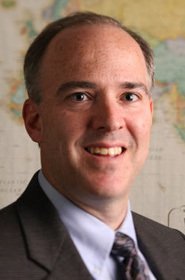
The International Criminal Court on Tuesday (July 10) sentenced former Congolese warlord Thomas Lubanga to 14 years in prison for using children as soldiers in his rebel army — the first sentence handed down by the world’s only permanent war crimes tribunal.
“The criminal prosecution of Lubanga does not go far enough for international justice,” according to Daniel Philpott, associate professor of political science and peace studies at the University of Notre Dame.
“While the conviction and sentencing of Lubanga is a signal victory for the International Criminal Court and the punishment of arch war criminals contributes to international justice, the international community’s overriding focus on prosecution does little to address the wide range of wounds that war and genocide inflict,” Philpott says, “nor does it contribute to peace and stability. More promising for lasting peace is a different paradigm that has emerged through global efforts to address past injustices: reconciliation.
“Rooted in religious traditions, reconciliation seeks a holistic restoration of right relationship, including a transformation of popular attitudes through practices such as public acknowledgment, accountability, reparations, apology and forgiveness. In settings such as the Arab Spring, where addressing past injustices is crucial for a stable and democratic future, reconciliation is a more promising approach than a single-minded focus on prosecution.”
The author of “Just and Unjust Peace: An Ethic of Political Reconciliation,” Philpott is an expert on how societies address past injustices, seeking to balance truth, justice, reconciliation and stability.
Contact: Daniel Philpott, 574-631-7667, philpott.1@nd.edu